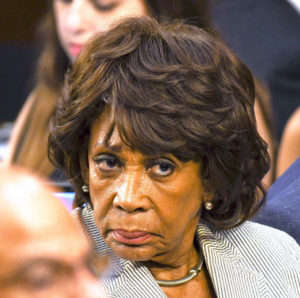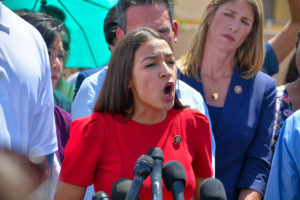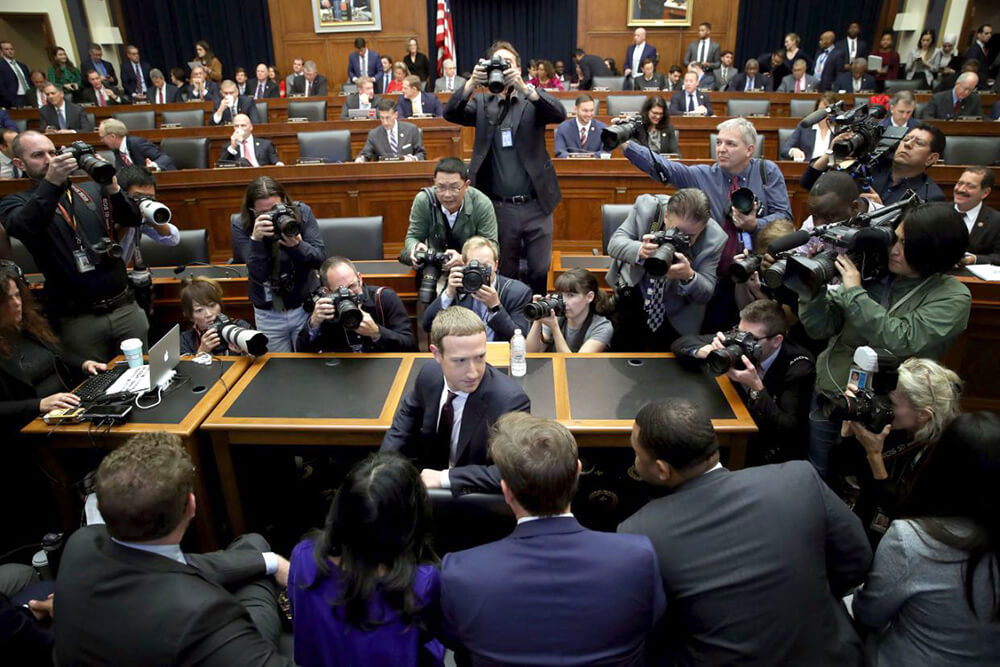By: Shmuel Weisbrod
In a hearing on Wednesday before the House Financial Services Committee, Facebook CEO Mark Zuckerberg stated he “didn’t know” if his company’s new Libra cryptocurrency would work.
“As we sit here, there are more than a billion people around the world who don’t have access to a bank account but could if the right system existed,” said Facebook CEO Mark Zuckerberg during his opening testimony before the House Financial Services Committee this week. “I believe that this problem can be solved and Libra can help,” Zuckerberg said referring to the new Libra cryptocurrency being developed in part by Facebook.
Breitbart reported that Zuckerberg continued to state: “The idea behind Libra is that sending money should be as easy and secure as sending a message. Libra will be a global payment system fully backed by a reserve of cash and highly liquid assets. Now I believe that this is something that needs to get built but I get that I’m not the ideal messenger for this right now. We’ve faced a lot of issues over the past few years and I’m sure there’s a lot of people that wish it was anyone but Facebook who were helping to propose this.”
Zuckerberg stated that he is unsure about the success of the project stating: “I actually don’t know if Libra is going to work, but I think it’s important to try new things as long as you’re doing so responsibly. That’s what has made America successful and it’s why our tech industry has led the world.”
Breitbart reported that Zuckerberg then discussed the Libra association which is comprised of 21 companies and organizations that aim to develop the Libra cryptocurrency. “Even though the Libra association is independent and we don’t control it,” said Zuckerberg, “Facebook will not be a part of launching the Libra payment system anywhere in the world even outside the U.S. until the U.S. regulators approve.”

House Financial Services Committee Chairwoman Maxine Waters renewed her call to halt the launch of the global digital currency and even suggested the company should be broken up.
AP reported that during testimony before the committee, Zuckerberg acknowledged the planned 2020 rollout is a “risky project,” but said the cryptocurrency would provide a secure method for millions of Americans who don’t have bank accounts to make low-cost fund transfers.
“People pay far too high a cost, and have to wait too long, to send money home to their families abroad. The current system is failing them,” Zuckerberg said.
Top financial regulators and lawmakers from both parties have voiced concerns the cryptocurrency could be used for illicit activity such as money laundering and drug trafficking, according to an AP report.
AP reported that some regulators are also concerned the enormous reserve created with money used to purchase the digital currency could supplant the U.S. central banking system and weaken the global financial system.
Zuckerberg addressed those concerns, according to an AP report, with an assurance the cryptocurrency, known as Libra, would not be introduced anywhere in the world “unless all U.S. regulators approve it.”
Waters, however, demanded that Zuckerberg stop plans to launch Libra until the company addresses numerous issues confronting its effect on consumers and the U.S. political system.
Waters called Libra “a new Swiss-based financial system” that could require a tax bailout. She also suggested Facebook has become too large and powerful; a sentiment that has increased exponentially over the years.
“You have opened up a serious discussion about whether Facebook should be broken up,” Waters said as she listed a series of problems confronting the company in her opening remarks, according to the AP report.
Waters also said after she scrutinized the company’s problems, “I have come to the conclusion that it would be beneficial for all if Facebook concentrates on addressing its many existing deficiencies and failures before proceeding any further on the Libra project.”
Two weeks ago, the Jewish Voice reported that PayPal announced its withdrawal from the Libra. In June, when Facebook first rolled out Libra, PayPal was among 28 corporate partners to jump onboard. Libra, which has been in the making for over a year, was designed as a cryptocurrency that could be used to purchase online throughout Facebook’s sites, including Messenger and WhatsApp, across the globe as an international exchange, as a service especially in countries were other online currencies are not available. As reported by CNBC News, all founding members were expected to help govern Libra, keeping it independent of Facebook, and also to invest a minimum of $10 million to fund the operating costs, as well as launch an incentive program to drive adoption. Those investments had not yet been made.
“PayPal has made the decision to forgo further participation in the Libra Association at this time and to continue to focus on advancing our existing mission and business priorities as we strive to democratize access to financial services for underserved populations,” a spokeswoman for PayPal, Amanda Coffee, wrote in an email. David Marcus, who was previously president at Paypal, and who now leads the Facebook project, said PayPal is still “supportive of Libra’s aspirations”, and will continue to partner with Facebook in the future.
“We recognize that change is hard, and that each organization that started this journey will have to make its own assessment of risks and rewards of being committed to seeing through the change that Libra promises,” said Dante Disparte, head of policy and communications for the Libra Association. He said that over 1,500 other companies and organizations have conveyed interest in becoming partners. “We’re better off knowing about this lack of commitment now, rather than later,” he added.
Two weeks ago, it was reported that the European Court of Justice, located in Luxembourg, ruled in favor of Eva Glawischnig-Piesczek, former leader of Austria’s Green Party, saying Facebook should indeed globally remove content that was disparaging to the Austrian politician. As reported by the NY Times, the ruling, which cannot be appealed, means that countries can force Facebook to delete posts, photographs and videos as ordered by a country’s court- beyond that country’s borders and around the world.
Glawischnig-Piesczek originally brought the lawsuit in 2016, when online comments called her a “lousy traitor,” “corrupt oaf” and member of a “fascist party” on Facebook. After a local Austrian court held that the comments did violate the country’s defamation laws, which are among the strictest, she demanded Facebook erase the original comments worldwide, along with posts with “equivalent” remarks. Facebook initially refused to take down the negative comments, saying that such posts, though defamatory, would be considered acceptable in other countries like the United States. Her case was elevated to the highest EU court, and her case was validated.
While the DC hearing’s focus was on the digital currency, Facebook’s policies and conduct also attracted congressional attention, as was reported by the AP.
AP reported that committee members cited issues such as the company’s ad platform that has enabled housing discrimination, the dearth of employees with little civil rights experience, the company’s facilitation of foreign election interference and its treatment of political ads.

Rep. Alexandria Ocasio-Cortez, D-N.Y., questioned Zuckerberg about his company’s complex policies involving false information in political advertisements, according to a CNBC report.
Ocasio-Cortez used her time during the hearing to emphasize the complexity and confusing nature of Facebook’s new policies.
“Could I pay to target predominantly black zip codes and advertise them the incorrect election date?” Ocasio-Cortez asked, according to the CNBC report.
“No, congresswoman, you couldn’t,” Zuckerberg responded. “We have even for these policies around the newsworthiness of content that politicians say and the general principle—”
“But you said that you’re not going to fact-check my ads?” Ocasio-Cortez asked.
Later, Ocasio-Cortez drove her point further by asking if she could run ads with false information concerning her Green New Deal.
The embattled CEO last testified before Congress in April 2018, when he faced 10 hours of questioning over two days in the House and Senate on political consulting firm Cambridge Analytica’s misuse of Facebook customer data to interfere in the 2016 presidential election.
Politically conservative organizations, religious groups and those taking a right of center approach to the US political system have also been intentionally stymied by the powers that be that operate Facebook from behind the scenes.
David Ben Hooren, the publisher of the Jewish Voice said, “We have been very vocal about the inherent and odious bias that guides Facebook’s policies. The Jewish Voice has substantially increased its presence on social media and we have an impressive digital footprint, but the folks at Facebook have limited the number of those people that wish to follow us and join us. The number of “likes’ that we have and the number of people viewing our Facebook page has remained absolutely frozen for years and we know that this is being done intentionally as they seek to silence us.”
Facebook has embarked on a political campaign to target certain users for their views. Case in point: Liberal and leftist groups and/or individuals or those who toe the line that CEO Mark Zuckerberg happens to subscribe to are given the opportunity to gain an infinite amount of “likes” and followers and their content is never censored. Anyone who does not march lock step with the Facebook doctrine is dealt with in a punitive manner that comes in the form of losing followers, “likes” and essentially remaining stagnant.
Ben Hooren added, “The larger implications of Facebook’s problems however carries way more long-term egregious ramifications. The fact is now clear that Facebook has morphed into a political tool that cryptically enforces the unyielding mantra of liberalism. They do this while making it a priority to feverishly target, punish, silence and block political conservatives (i.e. Trump supporters and others of that ilk) or any person or group that does comport with their circumscribed philosophies. The result is that this kind of behavior has really placed the First amendment on life support.”
Addressing the issue of whether trade with China would help to contribute to creating a more open society, Zuckerberg said, “I think it’s fair to say that my views have evolved. I probably ten years ago would have been more optimistic that trying to work in China could have contributed to making a more open society.”
Without naming specific examples, the Facebook CEO went on to cite cases “in the last few weeks” showing American values’ being “compromised” by their links to China, according to a Breitbart report.
“Today it seems in some cases that in some cases working in China not only does not do that but compromises American companies’ ability to promote our values abroad and around the world, and I think we’ve seen that in the last few weeks in a number of cases.”
Recently, both the NBA and Blizzard Entertainment, both American companies, have engaged in censorship on behalf of China, as was reported by Breitbart.
Continuing his testimony, Zuckerberg said that tech companies coming out of China do not share the “strong free expression values” of American tech giants — even though virtually every major American social media platform has been condemned by Republican politicians (and some Democrats) for failing to protect the free expression of their users, as was reported by Breitbart.
“Over the last decade, pretty much all of the major internet platforms have been American companies with strong free expression values, and I just think that there’s no guarantee that that’s the state of the world going forward. Today, six of the top ten companies are coming out of China and certainly do not share our values on things like expression.”
Breitbart reported that the Facebook CEO also warned that Chinese tech companies have an advantage in terms of infrastructure, and the close partnerships between Chinese tech companies and the Communist government.
“Part of the infrastructure that they’re building on is a lot more modern than some of what we would have to build on here.”
“As soon as we put forward the white paper around the Libra project, China immediately announced a public-private partnership working with companies like that, to extend the work that they’d already done with Alipay into a digital Renmimbi as part of the Belt & Road initiative that they have, and they’re planning on launching that in the next few months.”





